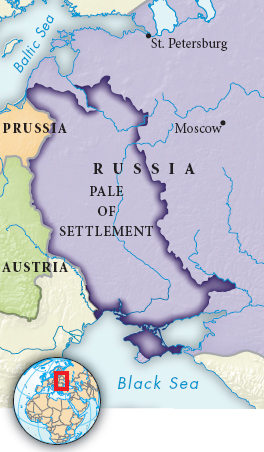Jewish Life and the Limits of Enlightened Absolutism

Perhaps the best example of the limitations of enlightened absolutism are the debates surrounding the emancipation of the Jews. Europe’s small Jewish populations lived under highly discriminatory laws. For the most part, Jews were confined to tiny, overcrowded ghettos, were excluded by law from most professions, and could be ordered out of a kingdom at a moment’s notice.
In the eighteenth century, an Enlightenment movement known as the Haskalah emerged from within the European Jewish community; it was led by the Prussian philosopher Moses Mendelssohn (1729–
Arguments for tolerance won some ground. The British Parliament passed a law allowing naturalization of Jews in 1753 but later repealed the law due to public outrage. The most progressive reforms took place under Austrian emperor Joseph II. Among his liberal edicts of the 1780s were measures intended to integrate Jews more fully into society, including eligibility for military service, admission to higher education and artisanal trades, and removal of requirements for special clothing or emblems.
Many monarchs rejected all ideas of emancipation. Although he permitted freedom of religion to his Christian subjects, Frederick the Great of Prussia firmly opposed any general emancipation for the Jews, as he did for the serfs. Catherine the Great, who acquired most of Poland’s large Jewish population when she annexed part of that country in the late eighteenth century, similarly refused. In 1791, she established the Pale of Settlement, a territory including parts of modern-
>QUICK REVIEW
What aspects of their states did enlightened monarchs attempt to reform? What aspects did they generally leave untouched?